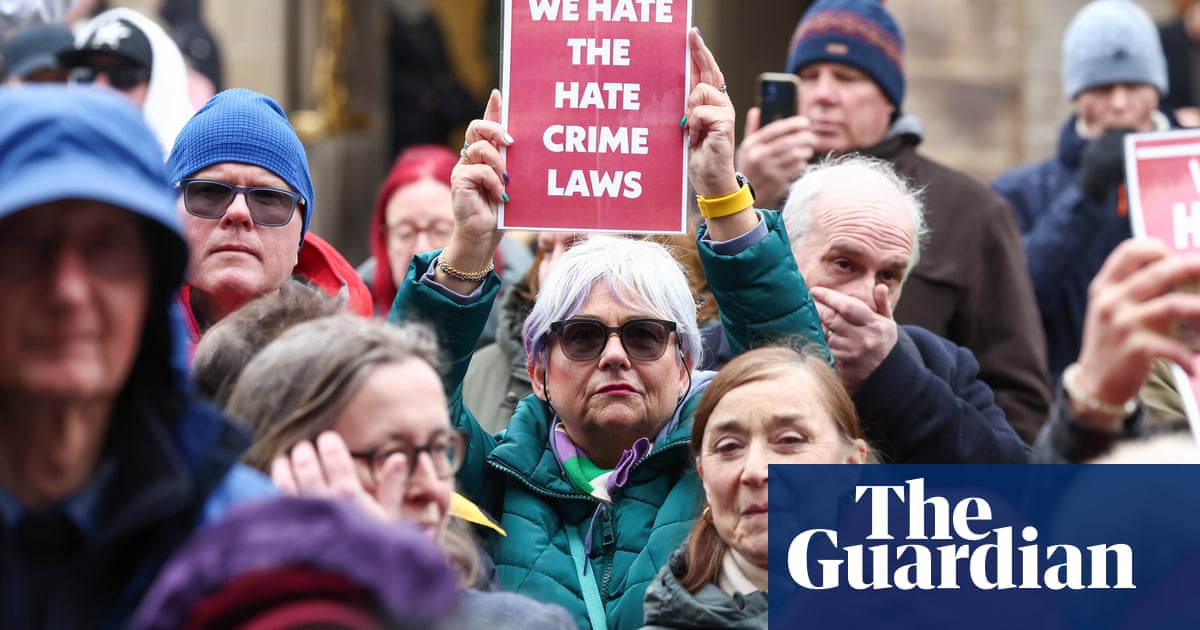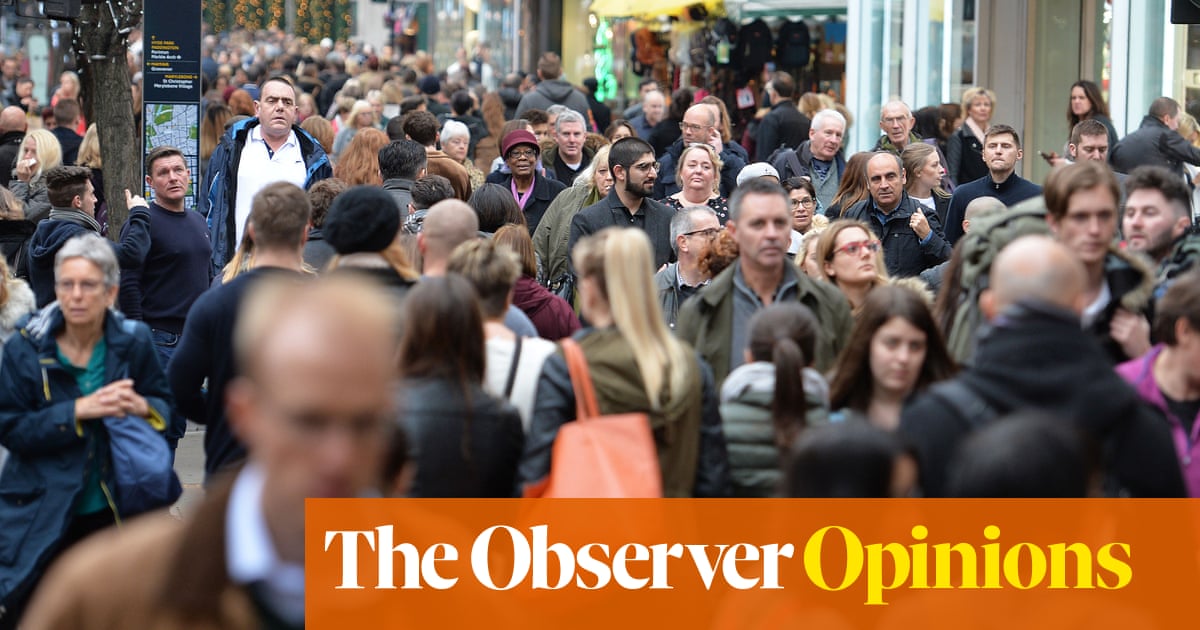
It is right that expressions of hatred against groups based on race and ethnicity are illegal. Whether these laws have ended hatred or merely driven it underground – a not unwelcome outcome – is a matter of opinion. But Scotland’s law against hate crime, implemented this week, extends state intervention to the “stirring of hatred” against a range of groups defined by age, disability, faith, sexual orientation, transgender identity or being intersex. Controversially, it does not extend to women – the Scottish government says a separate misogyny law is in the works.
The pitfalls in the new law have led to three years of heated debate in the Scottish parliament. The prosecution need only prove that a remark was “likely” rather than “intended” to offend. A crime could be committed if “a reasonable person would consider it threatening, abusive or insulting”.
The extension of hatred to include “insulting” conduct is radical. It is one thing for Scotland’s first minister, Humza Yousaf, to accuse objectors of overreacting. He will not be the law’s interpreter. It will be for the police in the first instance and then the courts to judge the extent of the insult. The victim of a Scottish insult will be at liberty to report it to a police station for possible prosecution – with a maximum of seven years in jail – merely on the grounds that they feel their group to be insulted.
Even if the police decide to take no action, they may register the report as a “hate incident”, not considered a crime. This has already occurred to an MSP, Murdo Fraser, who stated on social media that: “Choosing to identify as ‘non-binary’ is as valid as choosing to identify as a cat. I’m not sure governments should be spending time on action plans for either.” The police have defended the recording of hate incidents, saying it helps them “monitor tensions within communities, enabling appropriate police responses”. But is that their job?
Reactions to the law have focused on the difficulty of coherently defining the crime. The Scottish Police Federation has already warned of a lack of training for what is expected to be a “huge uplift” in complaints requiring investigation. A Glasgow law professor, Adam Tomkins, points out that there is nothing to stop allegations of hate speech made in the privacy of the family. This has echoes of Mao’s Cultural Revolution. Nor is there protection for schools, clubs or private institutions. In effect, the law proposes a potentially massive extension of police discretion into the private and social life of Scotland.
A different concern is where the law leaves free speech north of the border. The land of Reformation and the Enlightenment appears set on becoming the seedbed of state censorship. Elon Musk of X (formerly Twitter) has already made this claim, though it is hard to see how the Scottish police are going to monitor the digital universe. The Edinburgh festival has reportedly been assured of its safety as the police have promised not to censure actors or satirists, but they will presumably feel obliged to record any “non-crime hate incidents”.
The Scottish government is eager to stress its commitment to open debate. It argues that it is merely extending the clampdown on causing racial offence to other potentially harmed minorities. The act explicitly mentions adherence to the European convention on human rights and its protection for “ideas that offend, shock or disturb”. Quite how that marries with the remainder of the act is a mystery, one that legislators have left to the forces of law and order to resolve.
Britain’s race laws have not eliminated discussion of racial issues, so it is possible that Scotland’s messy attempt at state censorship will not be unduly restrictive. It may reduce some of the toxicity of today’s “culture wars”, which would be welcome. The risk is that it will weaken the informal disciplines by which we conduct public conversation. For tolerance, courtesy, understanding and community reprimand, it will substitute the long arm of the law. Institutions, universities, churches and clubs will not be trusted as fit places to conduct debate. They must fear the police. That is a sign not of social advance, but of social failure.
Simon Jenkins is a Guardian columnist












